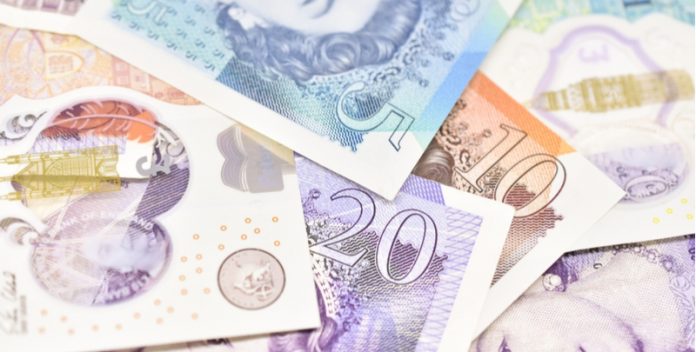The pound pushed higher against the euro on Monday as investors look ahead to a data heavy week. The pound hit a high of €1.1591, with investors growing in confidence that monetary policy in the UK and the eurozone will start to diverge.
| What do these figures mean? |
|---|
|
When measuring the value of a pair of currencies, one set equals 1 unit and the other shows the current equivalent. As the market moves, the amount will vary from minute to minute. For example, it could be written: 1 GBP = 1.13990 EUR Here, £1 is equivalent to approximately €1.14. This specifically measures the pound’s worth against the euro. If the euro amount increases in this pairing, it’s positive for the pound. Or, if you were looking at it the other way around: 1 EUR = 0.87271 GBP In this example, €1 is equivalent to approximately £0.87. This measures the euro’s worth versus the British pound. If the sterling number gets larger, it’s good news for the euro. |
House price data from Rightmove supported the climb in the pound in the previous session. The data showed that UK house prices hit a record in April climbing a further 0.6% month on month adding to March’s 1.5% increase. Increasing house prices shows that banks are still will to lend and consumers are still willing to take on debt and confident enough to purchase, which is a good sign for the economy. As a result, the pound moved higher.
| Why does strong economic data boost a country’s currency? |
|---|
| Solid economic indicators point to a strong economy. Strong economies have strong currencies because institutions look to invest in countries where growth prospects are high. These institutions require local currency to invest in the country, thus increasing demand and pushing up the money’s worth. So, when a country or region has good economic news, the value of the currency tends to rise. |
The pound also rose higher at the start of the week as investors looked optimistically towards UK jobs data due today. Whilst analysts are expecting UK unemployment to remain constant at 4.3%, they are forecasting average earnings to increase in the three months to February to 3%. This would be an increase from the 2.7% the previous month and would also signal earnings increasing above inflation. This would mean that the UK consumer would finally be experiencing an easing of the pressure which has been so prevalent since Brexit, as elevated inflation ran higher than wages increases, squeezing the consumer.
Should earnings print higher than inflation, investors could increase the odds of a rate rise by the Bank of England in May. The central bank would be more likely to hike rates on the back of a stronger economy and less pressurised consumer.
| Why do raised interest rates boost a currency’s value? |
|---|
| Interest rates are key to understanding exchange rate movements. Those who have large sums of money to invest want the highest return on their investments. Higher interest rate environments tend to offer higher yields. So, if the interest rate or at least the interest rate expectation of a country is relatively higher compared to another, then it attracts more foreign capital investment. Large corporations and investors need local currency to invest. More local currency used then boosts the demand of that currency, pushing the value higher. |
Will German Sentiment Data Pull The Euro Lower
Minutes from the European Central Bank policy meeting released last week showed that the ECB was not ready to start tightening monetary policy in the eurozone. Stubbornly low inflation remains a problem for the bloc. The divergence between the two central banks is making the euro look less favourable.
Today investors will look towards German sentiment data which could provide more reasons to sell out of the euro. Sentiment deteriorated significantly in March as the economic outlook for the bloc worsened. Analysts are expecting confidence to fall again in April, which could send the euro lower.
|
This article was initially published on TransferWise.com from the same author. The content at Currency Live is the sole opinion of the authors and in no way reflects the views of TransferWise Inc. |





